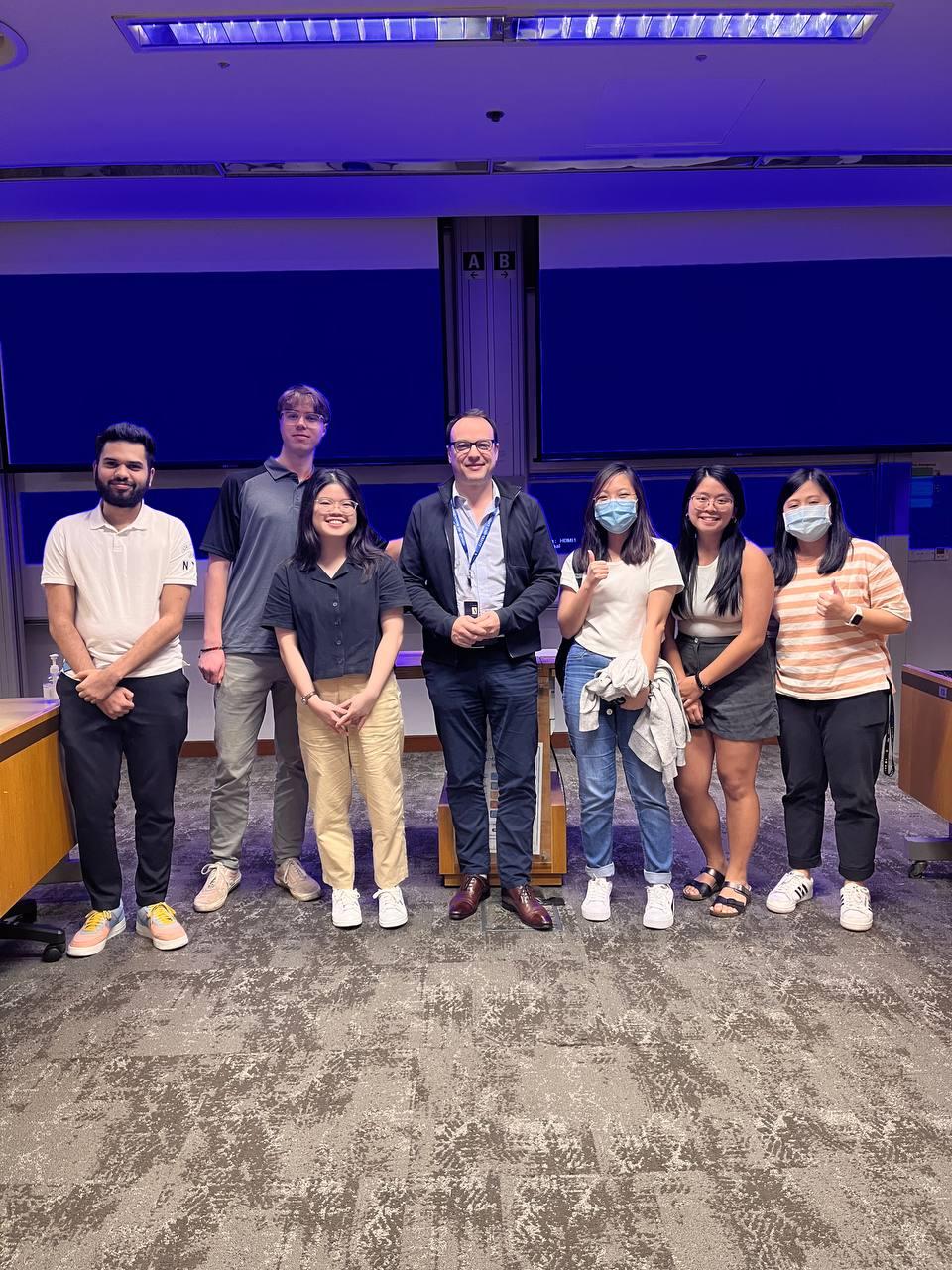
Business Interactions @ SMU
Taking business courses at SMU gave me valuable insight into the business environment in Singapore, specifically within supply chain and logistics. I took two supply chain courses over the semester, Global Supply Chain and Supply Chain Management. I learned a great deal about supply chains from professors, guest speakers, and even classmates who worked in manufacturing or whose families owned businesses in the manufacturing space. My professors for these two courses even knew each other well - one of them actually helped the other land a job at their current company, Zuellig Pharma, and later land the teaching gig at SMU! This just shows the power of networking and keeping in touch with connections within your industry for future opportunities.
In Global Supply Chain, the professor covered both concepts in supply chain as well as macro events that affect global logistics. During the course he taught about four key aspects of supply chain; Sourcing, Production, Planning, and Transportation, as well as trending topics such as Technology and Sustainability. He also brought in guest speakers from the U.S., China, and India. It was interesting to learn more about macro trends affecting various countries outside of Singapore as well.
In Supply Chain Management, the professor covered more general topics about supply chain and went more in-depth about supply chain drivers. Throughout the course, he continually emphasized the importance of forming connections with your peers and utilizing LinkedIn. One of his guest speakers was my professor from Global Supply Chain, and another was a former student who worked at his company, Zuellig Pharma, as a regional sustainability lead. The guest lecture that the former student gave was about sustainability and ESG, which I found to be very relevant. As I am interested in working in the sustainability space post-grad, I reached out to him on LinkedIn afterward.
A large portion of the grade for both of these courses centered around our group projects - my group project for Global Supply Chains was worth 40%. The local students that I worked with cared very much about doing well on these projects, especially with the school's bell curve grading system. As a result, there was group tension between the local and exchange students, and the professors preferred to step back to let the tension be resolved within the group. My advice (for any group project in general) is to let expectations be known, communicate whenever meetings need to be missed, and in general be direct with communication to avoid this!
In addition to class, I attended a couple of different company events held at SMU. I received an email about a UNIQLO recruiting event for a rotational program, and while I knew there was a low chance of being recruited as an exchange student, I figured I would see if the recruiter could pass on my information to any UNIQLO recruiters in the states. During the event, I learned more about UNIQLO's presence in Asia and its company values, particularly the Japanese standard of customer service. Afterward, there was a networking portion where I was able to introduce myself to the recruiters and meet other peers, a few of which became good friends!
Something else that I thought was interesting from discussions with Singaporean locals, was that it is common to have an internship after the first year and that many students have internships throughout the school year as well. Almost every local student I spoke with seemed to be juggling work on top of schoolwork and extracurriculars, since they are required to do at least one internship and one semester abroad as well. My friend was juggling a full-time internship with her coursework and said that in her workplace, the culture was very hierarchical (business professional dress rather than casual like some companies in the U.S.) and felt that her supervisor often sidestepped her or didn't acknowledge her work. While I wasn't surprised that business workplaces in Singapore were more strict, it was interesting to learn more about the differences in workplace culture, especially since I have been curious about potentially working in Asia post grad!





